Oleksander and Olena both stood on Maidan in Ukraine’s 2013 revolution and then continued to work for democratic reform and deSovietisation. Following Russia’s full-scale invasion, for the last 12 months, they have both served in their country’s defense. They recently shared their thoughts about the war’s greater purpose.
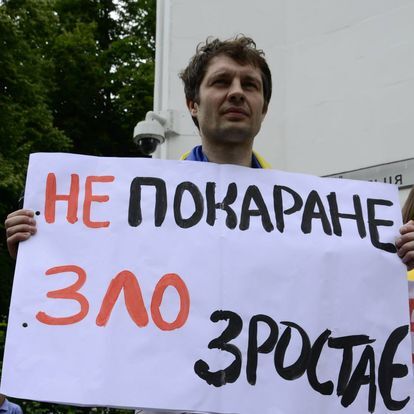
JOIN US ON TELEGRAM
Follow our coverage of the war on the @Kyivpost_official.
As policy reformers in Ukraine’s Ministry of Health, Oleksander Yabchanka and Olena Sharovska shared an office in a classic Kyiv building near the Mariinsky Palace and the Dnipro River. Now, they share another fate.
Like so many of their peers from among Ukraine’s best and brightest, Yabchanka, a pediatrician by profession, and Sharhovska, a communications specialist by profession, now both serve on the frontlines of Ukraine’s defense.
Yabchanka, 42, and Sharhovska, 45, are both long-term community activists and veterans of the Maidan movement. Off the back of Maidan’s momentum, they joined the Ministry of Health under Dr Ulana Suprun, the American-born Acting Minister from 2016 to 2019, who pursued a series of ambitious reforms.
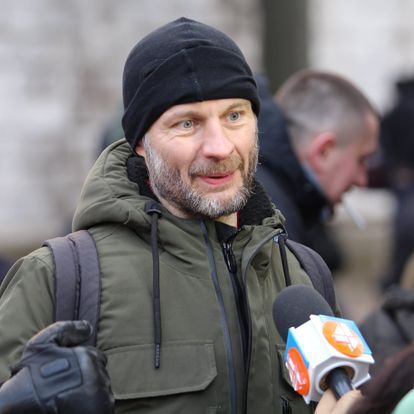
They sought change in Ukraine with their advocacy and their keyboards. They now seek change with weapons, in Yabchanka’s case, and with tourniquets, in Sharhovska’s case.
From the first days of the war, Yabchanka, from Lviv, started his military service as a medic in the 67th Separate Mechanized Battalion ‘Honor’ - a highly-respected unit which is currently based in Ukraine’s East.

UN Security Council Approves US-Backed ‘Neutral’ Resolution on Ukraine
Eventually, he became a drone operator for their reconnaissance unit. Now, Yabchanka is an infantry lieutenant and BPLA (unmanned aerial vehicle) specialist with the battalion’s elite ‘Da Vinci’s Wolves’ company.
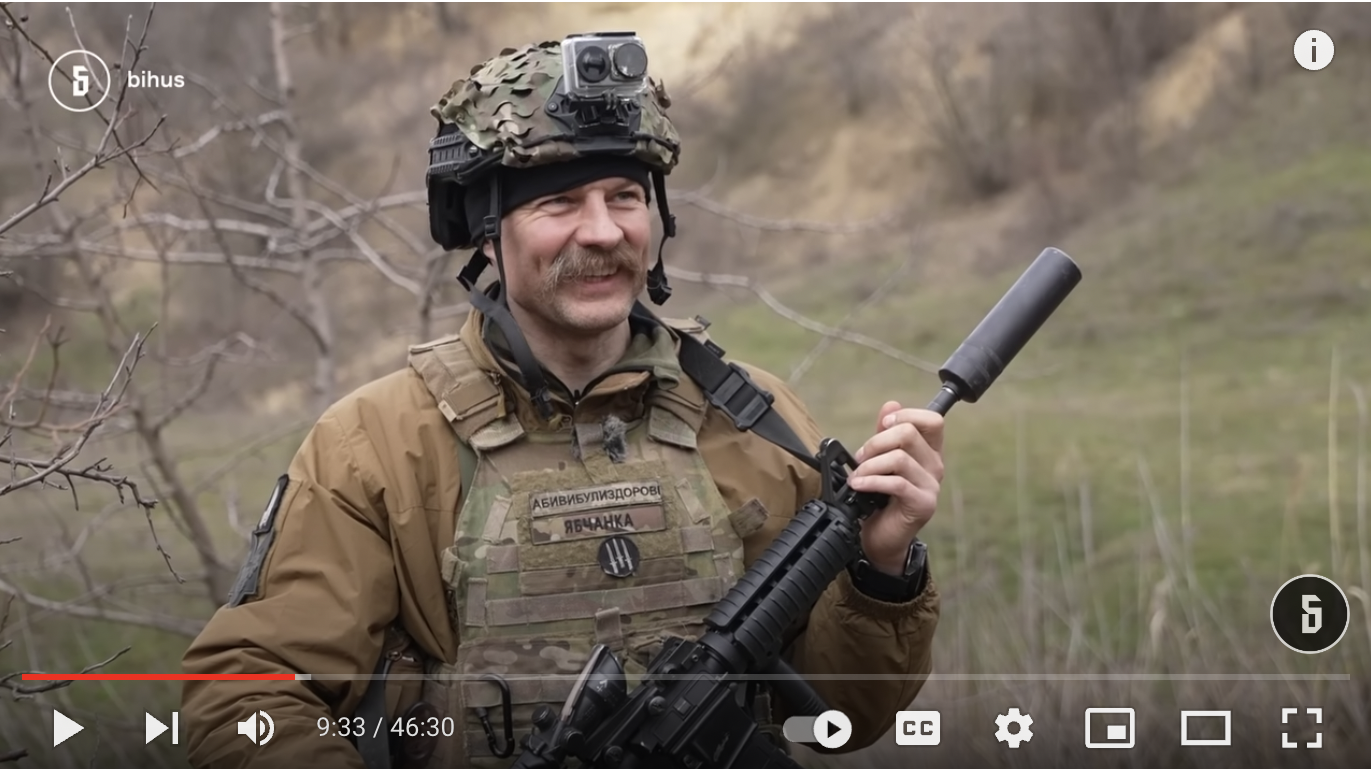
His nom d’ guerre translates as ‘That You Should Be Healthy’.
A lifelong Kyivan, Sharhovska’s military contribution started even earlier. In early 2014, after Maidan and Russia’s initial takeover of Crimea and eastern Ukraine, she trained for and volunteered as combat medic in the Donbas for eight months.
When the full-scale invasion started, Sharhovska re-joined Hospitallers, a voluntary medical battalion. In September 2022, she mobilized to the Armed Forces of Ukraine where she serves as paramedic in a medical unit operating in an undisclosable, frontline position.
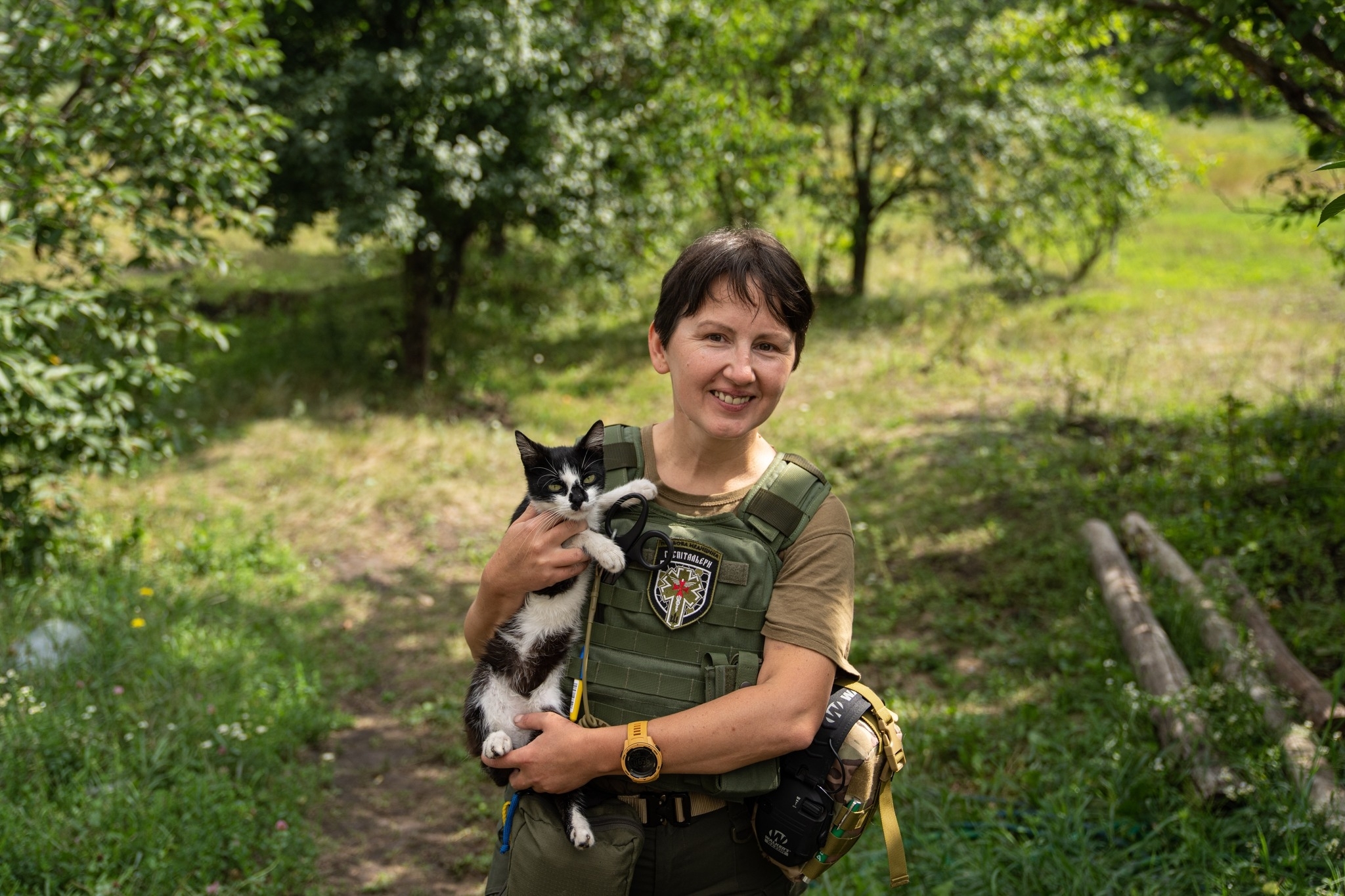
Her nom d’ guerre is ‘Jane.’
“Going to war in 2014 was my choice. Then, at the beginning of the Russian invasion, I first tried to do humanitarian volunteering, but it seemed to me that I was not doing enough,” Sharhovska said to Kyiv Post.
“My male friends were being mobilized, and I believed that my place was also at the front - that I had the same duty to fight that was attributed to strong men,” she said.
For both Yabchanka and Sharhovska, military service is part of a broader outlook. They both ardently believe in a more democratic and just Ukraine and world, and mutually see the current war as part of a difficult process toward achieving that goal.
Being Empowered and Taking Civic Responsibility
In a recent interview with Bihus from the frontlines, Yabchanka said that “we can’t defeat authoritarian and totalitarian Russia unless we ourselves are becoming more democratic.”
Yabchanka’s message is one of empowerment and taking responsibility.
“There are some people who have fallen asleep. But there are situations, like ours, where you don’t have the right to be asleep,” Yabchanka told Bihus. “We are in a period of time where we [Ukrainians] will either exist or we will not exist.”
“If you want to wear the blue-and-gold, then you need to realize that, whether you now choose to act or choose not to act as a citizen, determines whether we will be or we will not be,” he said.
“I sometimes hear: ‘Where’s the offensive? I’m tired of all this. It’s been a long time since some good news.’ Dude, then come here and help us make good news,” Yabchanka said.
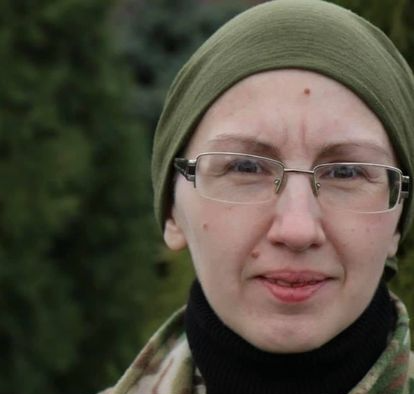
“[The Russians] will fight as long as they can. We will fight as long as we must. At the beginning of the war, I didn’t understand how long that meant,” Yabchanka said. “Now, if I prepare myself for many years, then I can be ready to keep fighting for decades… So, I will be here as long as it takes – whether that’s a day, a month or however long.”
Fighting Evil and Making Sacrifices for Others
Sharhovska replied to Kyiv Post’s questions from a temporary location at a training base while preparing to go back to the combat zone.
Sharhovska’s message is about resisting evil in the form of Russian forces, which she believes has consequences beyond Ukraine, and meeting one’s duty as a global citizen.
“Why I am at war? Because I cannot do otherwise. My conscience will not allow me to live a civilian life in peace; I feel an inner duty,” Sharhovska said.
“According to my nature, I can’t be a trainer or a humanitarian volunteer or a war correspondent. Plus, because of all my training, preparation and experience, I believe that I am now quite effective at medical evacuation. This work brings me moral satisfaction,” she said.
Sharovska said that she especially “feels great gratitude – and even emotion - for the foreigners, who also chose to be in my situation and struggle for our freedom and dignity. Because in order to meet this responsibility, one needs to greatly test one’s moral strength.”
“The more different people ‘wake up’ and put their efforts into this struggle in different ways, the more certain that we will stop this evil, which is not limited to Ukraine, but seeks to spread as widely as possible. Because that is the nature of evil,” she said.
“Sometimes, it is said that the world should help us because we contain a threat that endangers the West. I agree with that,” Sharhovska said.
“But there’s another way to look at it too. We all have responsibility for what will happen to our world –
and your family, village or city, or country that is a part of it.”
You can also highlight the text and press Ctrl + Enter











